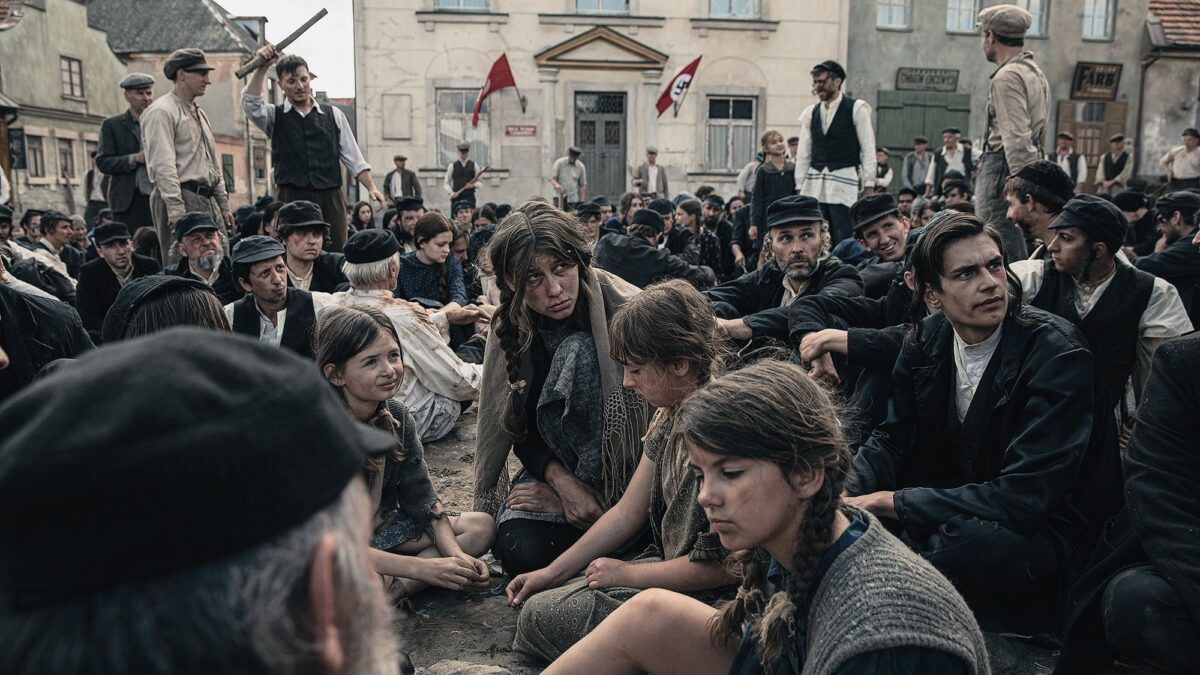Wojciech Smarzowski’s unusually strong and emotive Polish-language movie, The Wedding Day, merges past and present, gliding over a ragged landscape torn by ethnocentrism and violence and healed by humanity. It will be screened at this year’s Toronto Jewish Film Festival, which runs online and in-person from June 9-26.
Shifting seamlessly between modern-day Soviet-and German-occupied Poland, it deals with two incendiary and interrelated issues –antisemitism and Polish-Jewish relations.
It unfolds as Rysiek Wilk (Robert Wieckiewicz), the prosperous middle-aged owner of a meat-processing company in rural Poland, receives an unusual visit on the day his pregnant daughter, Kasia (Michalina Labacz), is to be married.
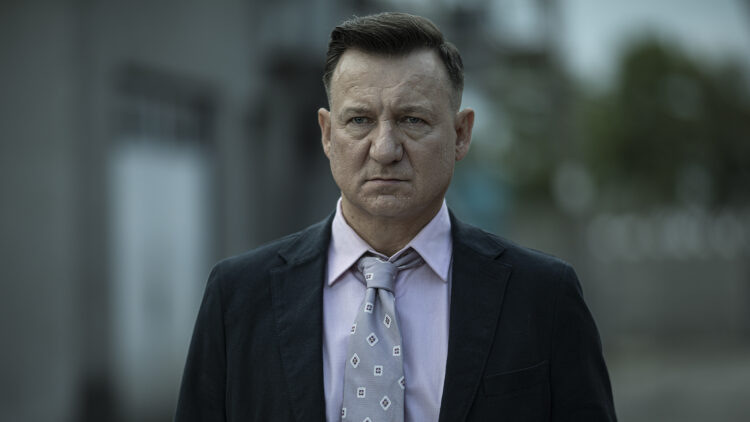
The unexpected visitors are Lewi Zuckerman, whose Jewish family hails from this region, and Saul Sztern, an official from the Israeli embassy in Warsaw.
Sztern informs the Wilk family that its patriarch, Antoni (Ryszard Ronczewski), a weather-beaten, solemn old man with a fringe of snow white hair, is the recipient of a special award honoring Polish Catholics who, at the risk to their own life, saved Jews during the Nazi interregnum.
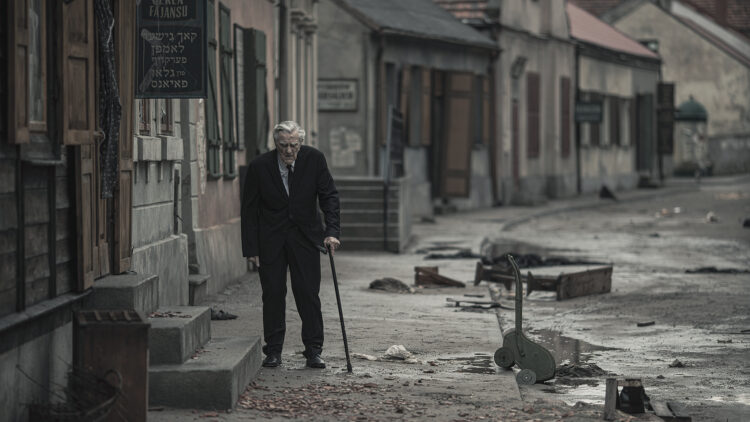
Zuckerman wants to know where deceased members of his family are buried in this unnamed town. He also has a letter for Antoni. It’s from Lea Fish, a Jewish woman he loved before decimation of Poland’s Jewish community during the Holocaust.
Their impromptu visit sets into motion a series of flashbacks to pre-war Poland. They speak to the checkered relationship between Poles and Jews on the eve of Germany’s invasion on September 1, 1939.
In one of these scenes, Antoni (Przemyslaw Przestrzelski) is pressured by antisemitic nationalists to boycott local Jewish shops. It’s a strange demand as far as he’s concerned because he is fixated on Lea (Agata Turbot), who hails from a traditional Jewish home where Yiddish is spoken.
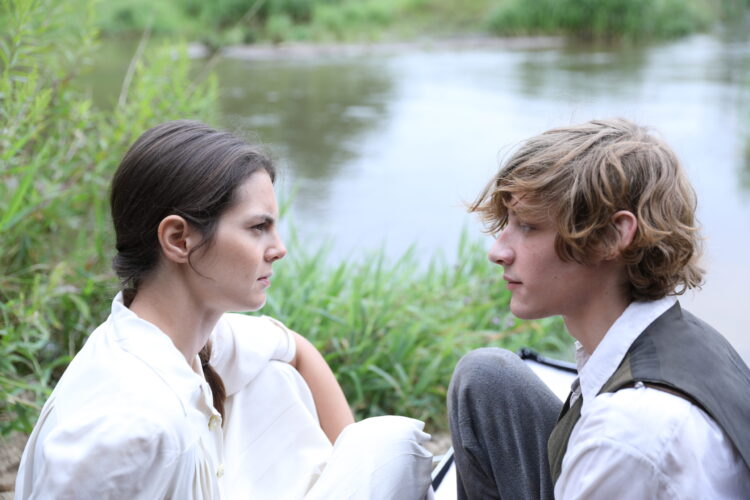
Antoni’s receptiveness to a Jewish woman is offset by a scene in which a priest attacks Jews as the immoral enemies of the church and of Poland and as the propagators of communism who seek global domination.
Wilk, in the meantime, is trying to close a deal with two German investors. Oddly enough, he is regarded as a Jew by some people in town, though he is plainly an observant Catholic.
In another flashback, a German officer assures Poles that Germany will rid Poland of Bolshevism and Jews. In yet another blast from the past, a Soviet army officer in eastern Poland extols the virtues of the Soviet Union and Joseph Stalin.
Contemporary Polish attitudes toward Jews surface when a Pole claims that the media is controlled by Jews and when a girl exclaims that Jews turn children into matzo.
In two scenes referencing the wartime years, Poles steal the possessions of Jewish deportees, and Antoni provides Lea and her parents with a hiding place.
At this juncture, Smarzowski returns to the present day with a seemingly irrelevant news flash that 230 Palestinians Arabs were killed in Israeli attacks. Is he implying that Jews can be equally brutal, as if to exonerate the excesses of Polish antisemitism?
Violent Polish behavior against Jews in wartime Poland is graphically revealed in several segments: A Pole rapes a Jewish woman. Poles on horseback hunt for Jews who have escaped into the woods. Polish men herd 500 Jews into a barn and turn it into a blazing inferno. “I’m doing this for Poland,” one lout says.
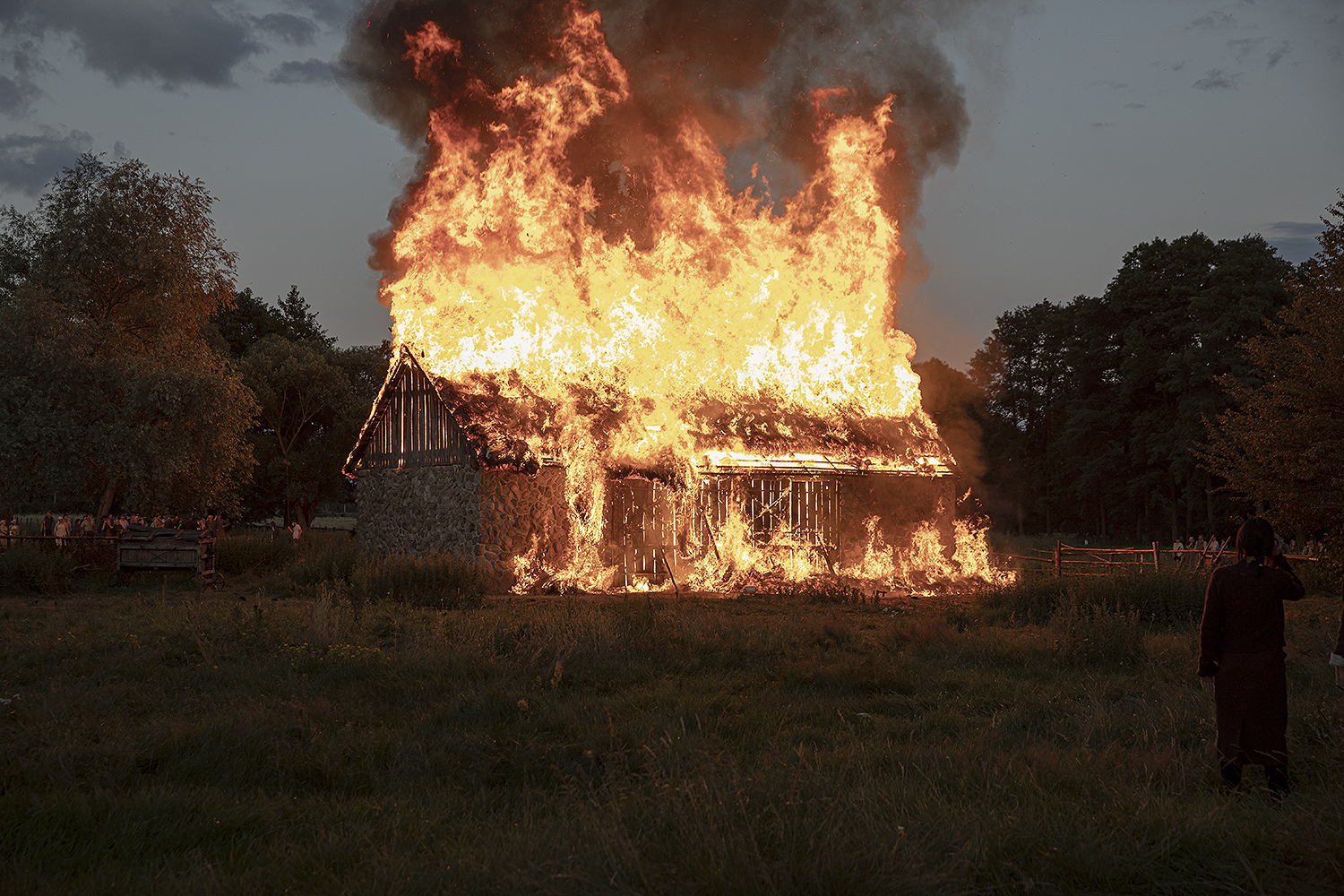
Much to his distaste, Antoni is called upon to remove two charred corpses from the building.
As these atrocities pile up, the wedding party grows rowdier by the moment, Katia grows disillusioned with her new husband, and Wilk’s heretofore docile wife surprises him with a blunt announcement that both shakes and angers him.
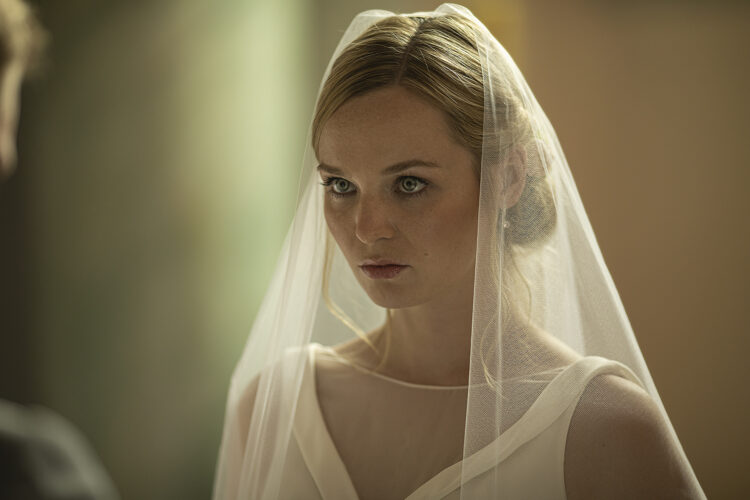
The Wedding Day exposes unpalatable events and themes in Poland’s history that some Poles would rather bury and forget. Smarzowski courageously resurrects them in a hard-hitting, warts-and-all film that respects the bitter truth.
